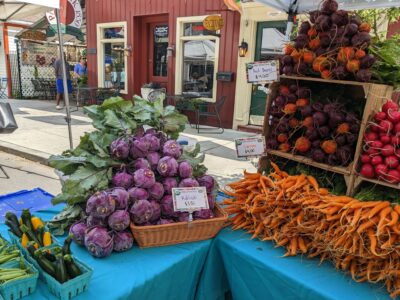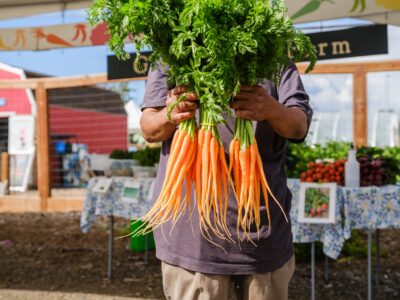Every state has something it’s known for, and in Iowa, that something is farming. According to the U.S. Department of Agriculture, as of 2022, Iowa ranked second only to California among the top agriculture-producing states by cash receipts.
That’s impressive, considering Iowa ranks only 31st in population and 23rd in square miles. The Hawkeye State is also a leader in organic farming, ranking sixth in the nation for the number of certified organic farms.
One of the main supporters of Iowa’s organic farming movement is the Rodale Institute, a 501(c)(3) nonprofit that aims to expand regenerative organic agriculture through research, farmer training, and education. Although the Rodale Institute is headquartered in Pennsylvania, it has a major presence in Iowa through the Rodale Institute Midwest Organic Center at Eztel Sugar Grove Farm in Marion, Iowa, near Cedar Rapids.

Photo Courtesy Rodale Institute
The Center provides research, education, and assistance to growers looking to implement organic farming practices.
It also serves as an educational center for the public and a site for collaboration between Rodale Institute researchers and local partners.
According to the Midwest Organic Center’s webpage, its main goals include the following:
- Research innovative, regenerative, organic growing methods and provide farmers with the education and resources to implement those practices in their operations.
- Gather data on the differences between conventional and organic agricultural methods in Iowa’s unique climate and soil.
- Expand organic acreage in the Midwest.
- Expand public access to Rodale Institute’s research.
- Create progressive opportunities in agriculture.
The Etzel Sugar Grove Farm, located on 190 acres, represents what the Rodale Institute calls “the future of agriculture in Iowa” through practices and educational programs designed to restore the health of Iowa’s farms, watersheds, and environment. The operation is part of Indian Creek Nature Center, Iowa’s only privately owned and run nonprofit nature center.
Photo Courtesy Indian Creek Nature Center
One key feature of the Midwest Organic Center is its Hobo Weather Station, which collects data for future research trials on the farm.
The center’s on-site staff uses the information “to connect weather patterns with soil moisture and temperature responses under different crop management practices.”
The Midwest Organic Center’s farm manager is Drew Erickson, a Colorado State University grad whose professional experience includes stints with the U.S. Forest Service and the Oregon Parks Department. Prior to joining Rodale Institute, he spent eight years working at a farm in California’s Napa Valley, where he raised chickens and turkeys, cared for horses, managed the forest, and helped produce fruits and vegetables.
Other staff includes Dr. Sean Stokes, a postdoctoral researcher who graduated from Colorado State University with a doctorate in Soil and Crop Science and a master’s in Environmental Toxicology. His research focuses on various topics related to agricultural systems, including soil health and the reuse of non-traditional water sources.

Photo Courtesy Rodale Institute
In addition, the Midwest Organic Center has a steering committee comprised of various academic, business, and agricultural leaders in Iowa.
The Rodale Institute has been around since 1947 and is now a leading advocate and resource for regenerative and organic farming. It lays claim to being “home to the longest-running side-by-side comparison of organic vs. conventional farming practices” in the form of the Institute’s Farming Systems Trial, which started in 1981. Research focus areas include “developing organic solutions to pests, diseases, and weeds, mitigating and adapting to climate change, and growing nutrient-dense foods.”





